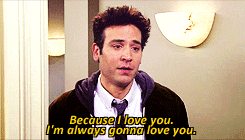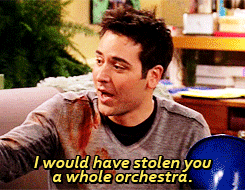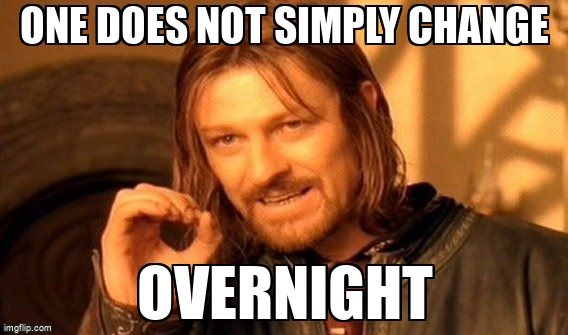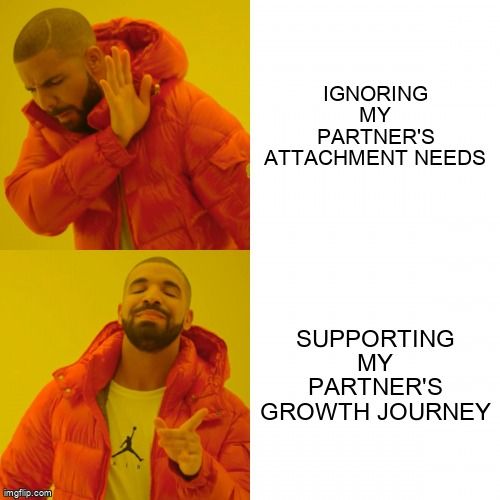Do you remember Ted? The adorable, hopelessly romantic narrator of the TV series How I Met Your Mother?

He was totally obsessed with finding the one.
He couldn't help but say, "I love you!" within days of meeting someone.
He felt threatened by his girlfriend's dogs because they belonged to former boyfriends.
He constantly fell for people who were not available.

These behaviours may look goofy or even adorable at first sight, but they actually point at Ted's insecure, anxious attachment style.
It's not fun having this type of attachment! So how can you support your own partner with anxious attachment?
How to Deal with Anxious Attachment Partner: Reality Check
A moment of self-reflection. Do you often hear these from your partner?
When I tell you my troubles, I feel like you don't really care.
I question whether you love me as much as I love you.
I need you to reassure me of your love and commitment.
I feel anxious about whether our relationship will last.
I wonder if there's something wrong with me that pushes you away.

Yes? Chances are you have a romantic partner with an anxious attachment style.
Anxiously attached people might have unhappy and unstable romantic relationships, but helpful partners can help regulate their emotions and promote greater relationship satisfaction and security.

Quiz
Joe
I do many of my tasks and hobbies alone. I have difficulty in reaching out when I need help.
Maggie
I sometimes feel superior in not needing others and I wish others were more self-sufficient.
Maryam
It's difficult for me to be alone. I've been told by my partner that I'm needy or high maintenance.
Kevin
At the same time I desire to be close with my partner, I also have a fear of losing the relationship.
Quiz
Which of these people are more likely to have an anxious attachment style?
What Can I Do For My Partner?
The first step of how to deal with an anxious attachment partner is to be patient, compassionate, and consistent.

Anxiety attachment is not a bad habit one can quit cold turkey. It's a way of seeing one's own self and relationships.
You can help your partner change that way of seeing over time, but you have to build on what's already there instead of trying to tear it down all at once.
Give Attention And Reassurance
Anxiously attached people received inconsistent care in the past, so your partner:
craves acceptance and closeness
worries about being under-appreciated
demands intense care and support
To buffer these negative effects, you can:
verbally express your affection
reassure them they are valued partners
communicate consistent commitment
Help your partner see that you are committed to the relationship and are willing to accommodate their needs. Such steps can improve the typical negative reactions of anxiously attached people, especially during distressing conversations.
Express Gratitude
Anxiously attached people have a negative self-view, so your partner:
feels insecure about their own worth
constantly fears rejection and separation
To support them, you can:
express your gratitude
highlight how responsive they are to your needs
You might think that you're showing your gratitude in your actions, but an anxiously attached person needs to hear them in words, such as, "Thank you for the massage. My back was so tight. That massage was exactly what I needed. I really appreciate it.”
Stick To Your Word
Anxiously attached people have emotional instability, so your partner:
can be overly sensitive to your actions and moods
can overreact to broken promises
To help them regulate their emotions, you should:
consistently stick to your words
show with your behavior that they can trust you
be more accommodating especially in distressing situations
Quiz 2
Kevin has an anxious attachment style. His partner Josh wants to help him manage his anxiety so that they can have a healthier relationship. Kevin is particularly anxious about household chores.
Quiz
Which of the following behaviors of Josh are likely to help Kevin?
Take Action
Remember that attachment anxiety is marked by a negative self-view, intense demands of care, and fear of rejection! You can help your partner ease the effects of this insecure attachment style by:
...and making sure you are encouraging them in their growth.

Your feedback matters to us.
This Byte helped me better understand the topic.
